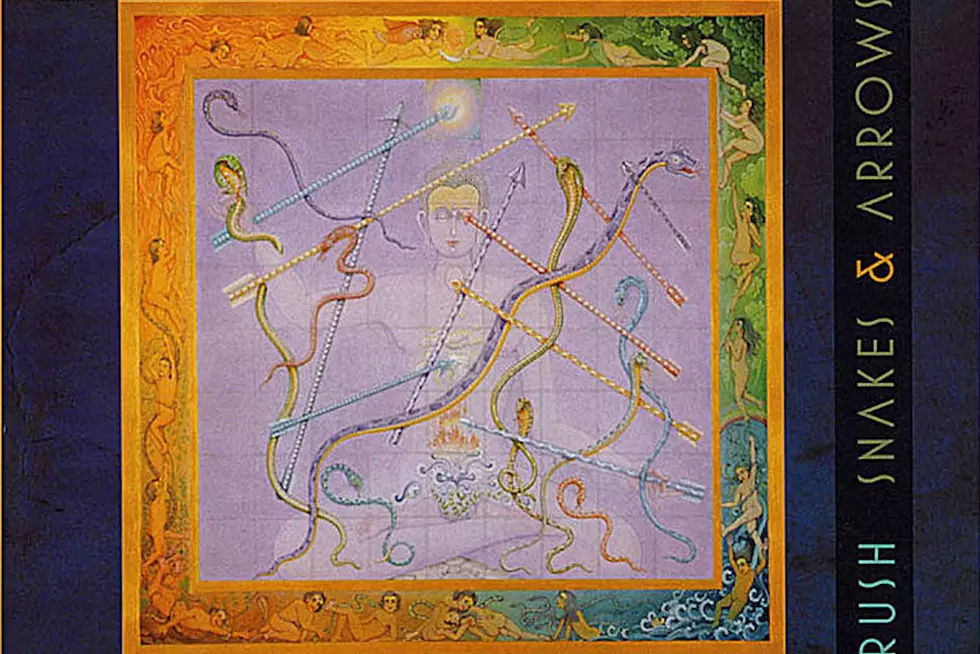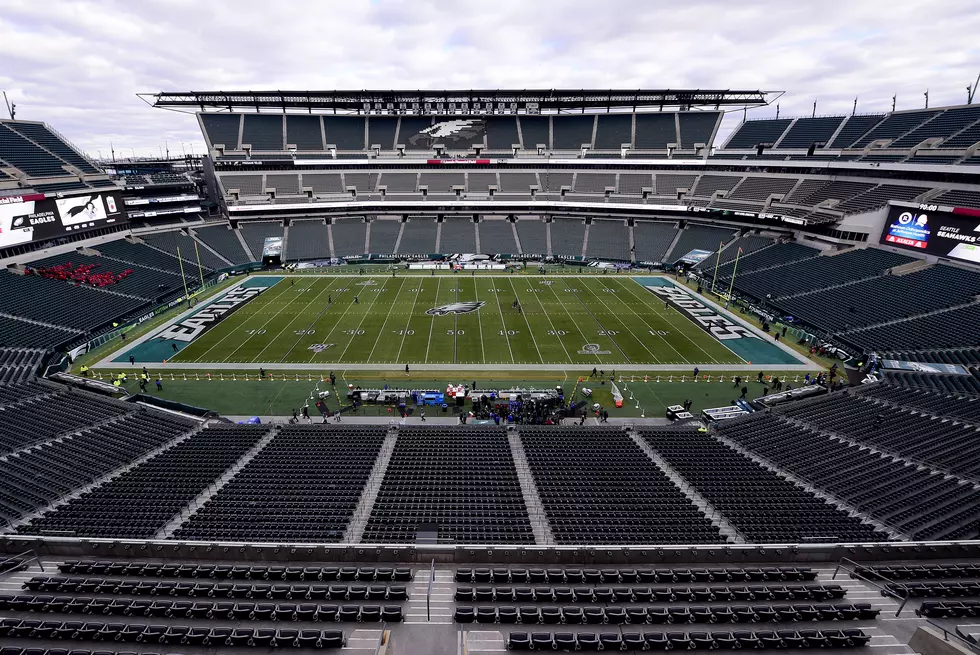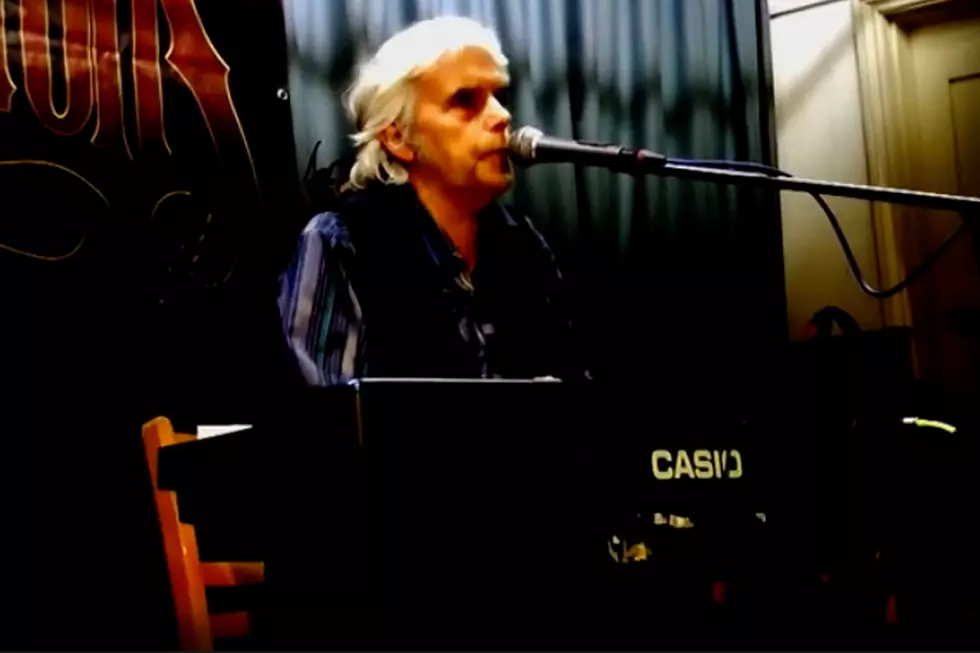
How Rush Channeled Old Board Game for ‘Snakes and Arrows’ Cover
Hugh Syme and Neil Peart were close, like-minded collaborators by the mid-'00s, having conceptualized three decades' worth of Rush album covers.
They almost always saw eye-to-eye creatively. One exception — at least at first — was 2007's Snakes & Arrows, which incorporated a Harish Johari painting based on an ancient, karmic Hindu board game.
The visual arose directly from the album's title, part of Peart's lyrics for "Armor and Sword." Ruminating on how children inherit — rather than choose — religious faith, the drummer combined the Hamlet phrase "slings and arrows" with the children's game "Snakes and Ladders," arriving at a word combination that felt fittingly familiar yet strange.
While researching to make sure the title hadn't been used by another band, Peart learned about the 2,000-year-old "Leela, the Game of Self-Knowledge," otherwise called "The Game of Snakes and Arrows." ("The Leela player rolls a single die, said to be affected by his or her karma and moves around the board," Peart wrote in the album's corresponding tour book. "Each square on the grid represents a stage of consciousness or existence, and the player is raised to higher levels by arrows, and brought low by snakes.")
When Peart discovered Johari's painting, he was struck by the visual-lyrical "serendipity" — and after earning approval from bandmates Geddy Lee and Alex Lifeson, he decided to make it the cover. Syme, who always handcrafted the prog-rock trio's artwork, was initially less enthused — though not because of the piece itself, which he describes as "lovely."
"It was one of the few times I thought, 'Now the world has access to Google, even Neil Peart,'" he tells UCR. "So I remember saying, 'I see what you have in mind, so leave it with me and I'll see what I come up with.' He said, 'No, I want that for the cover.' It was the first time I admittedly hung up, with a bit of a harrumph, still knowing I would be designing the entire package."
Syme recalls seeing internet critiques about the cover choice — and after doing his due diligence by passing them along, he earned a "very Neil" response.
"I remember — not as a complaining, territorial art director but as someone who felt, 'I wouldn't be doing my job if I didn't mention something to the band' — apparently there was some viral outcry when somebody leaked that board game image," he says. "People were saying, 'Why would the band use an existing game board I can buy on Amazon? This is crazy.' There was even some chatter [of] 'Is Hugh going the way of [former Rush producer] Terry Brown?' I remember saying, 'I better let Neil know these comments were being posted online.' Neil's response to me was ... 'When any of those people have their own band, they can make their own decisions.' Basically, 'Fuck off.'"
But Syme wasn't boxed out from the design process.
"I took liberties and created my own cover for the CD book cover," he says. "I had other platforms within the package to render my own interpretation of Snakes & Arrows. So I did. And Neil jokingly said, 'I see you claimed some real estate for yourself within the package.' Which is okay. But it's one of the few times he just liked something that he had unearthed [and decided to use it]."
He adds: "It became what it was. I understand it was a successful album. But we never repeated a cover with 'found art' again."
Rush Albums Ranked
More From Rock 104.1










